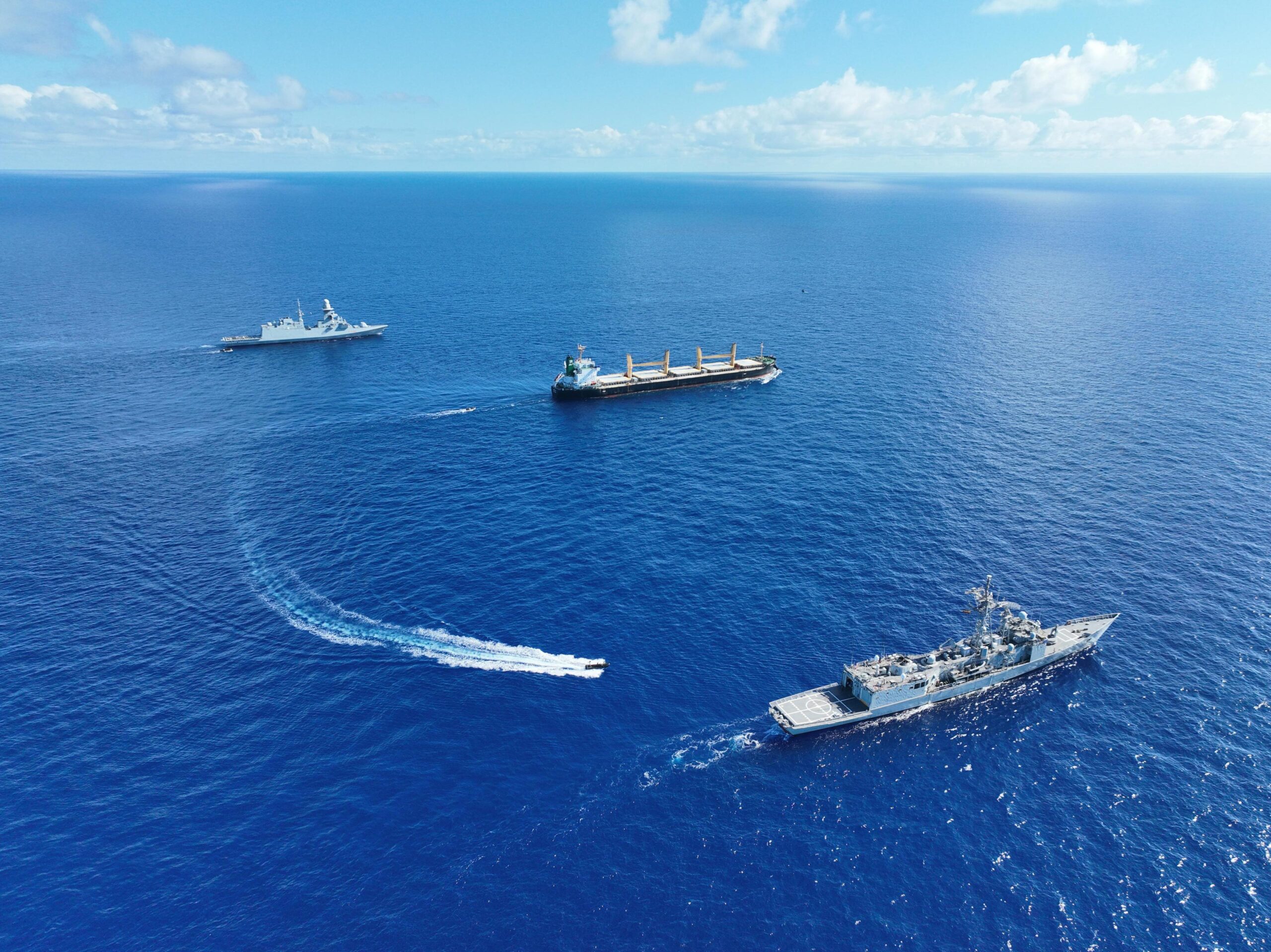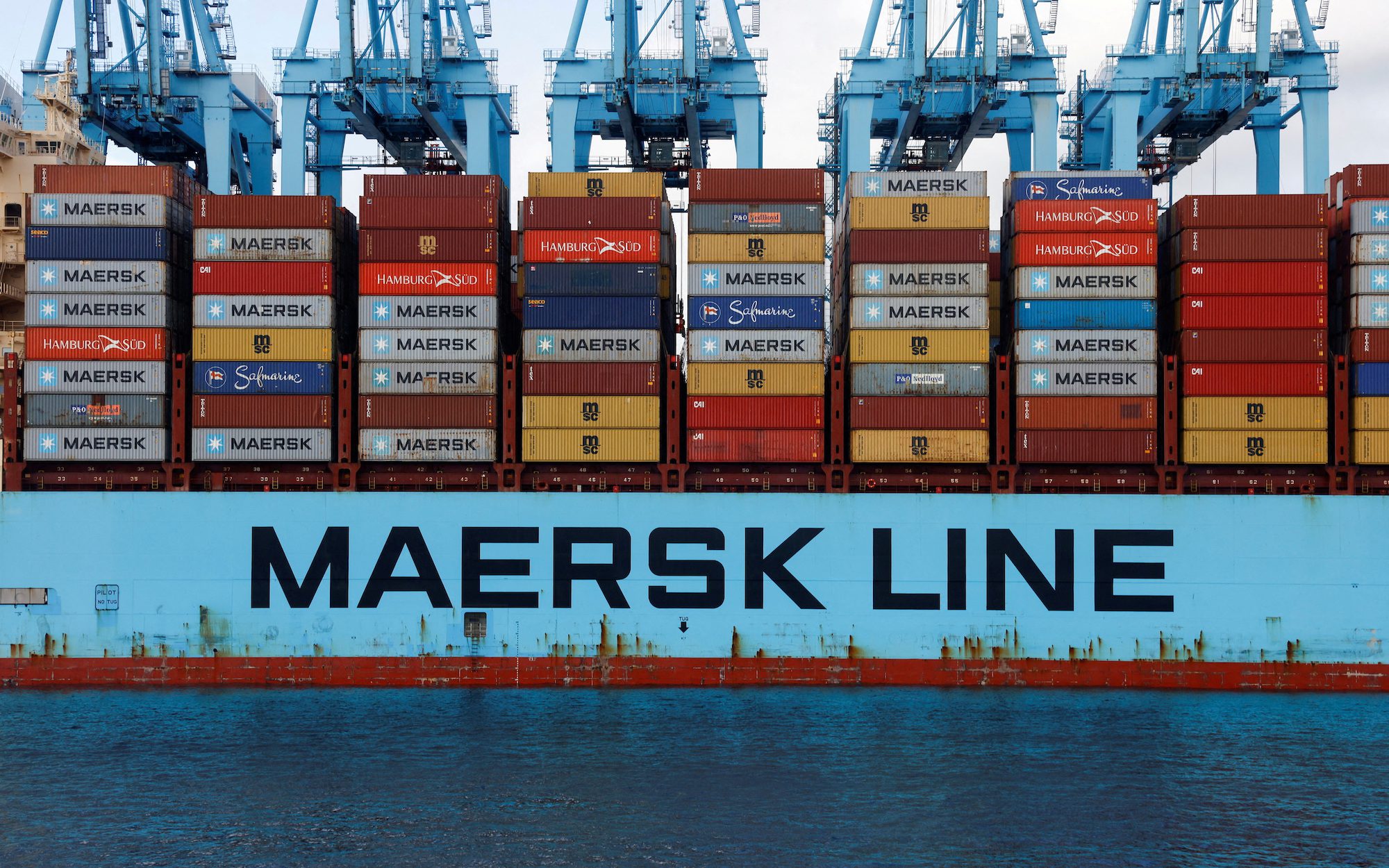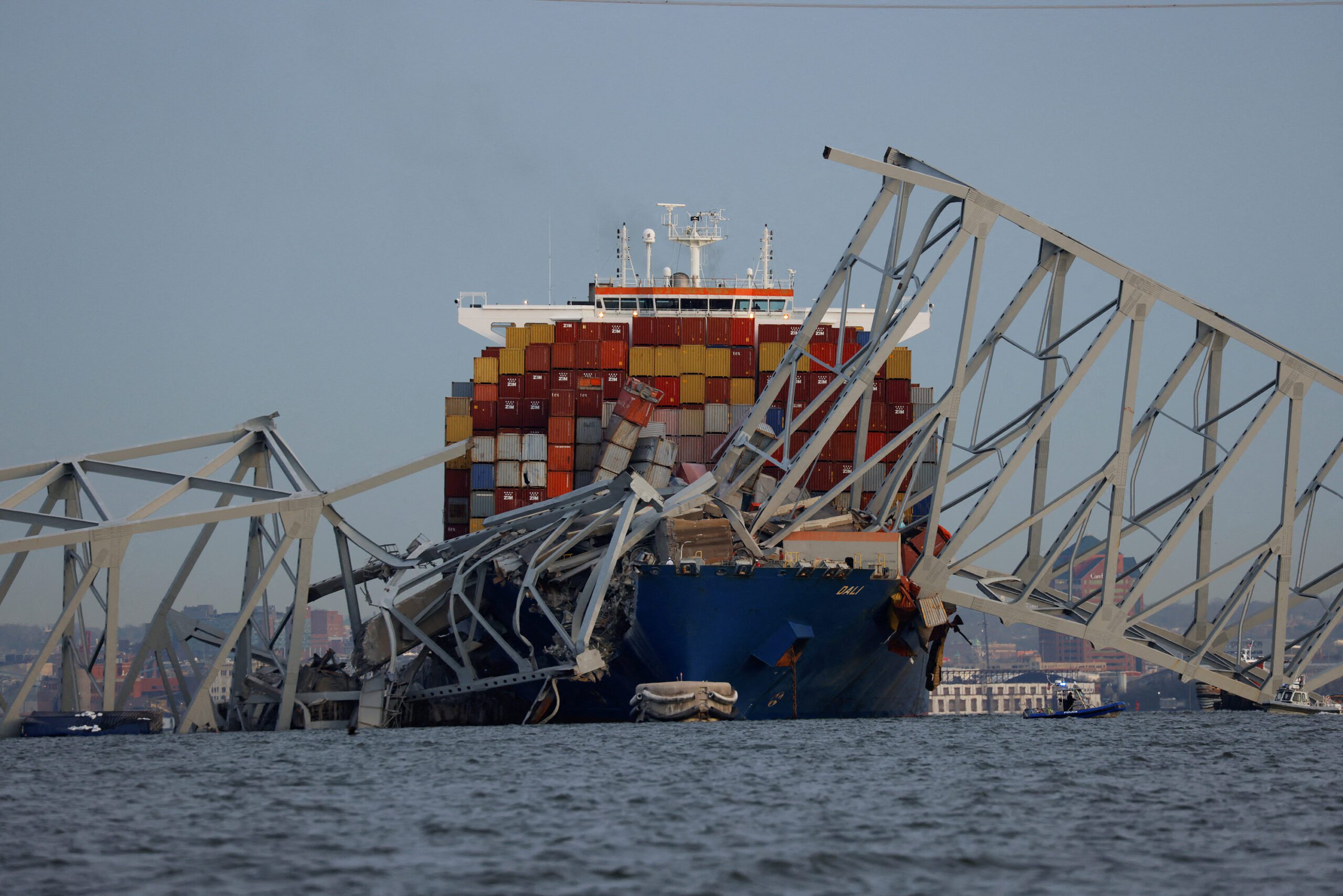A visit, board, search and seizure (VBSS) team from guided-missile cruiser USS Anzio (CG 68), investigates a suspected pirate skiff. (U.S. Navy photo by Mass Communication Specialist 2nd Class Bryan Weyers/Released)
(Bloomberg) — Pirate attacks fell to the lowest since 2008 this year as the presence of naval forces helped deter Somalis from attacking merchant shipping off the East African country’s coast.
There were 177 incidents worldwide in the first six months compared with 266 in the same period of 2011, the London-based International Maritime Bureau said in a report today. Somali pirate attacks fell to 69 from 163, the largest contribution to the wider decline.
Pre-emptive and disruptive counter-piracy attacks by international navies helped reduce the number of incidents off Somalia, according to the report. The European Union force operating near East Africa conducted its first air strike to destroy Somali pirates’ equipment on land on May 15, a new tactic to protect the region’s merchant shipping.
“The naval actions play an essential role in frustrating the pirates,” IMB Director Pottengal Mukundan said in the report. “There is no alternative to their continued presence.”
While incidents off East Africa are declining, the opposite is happening in the Gulf of Guinea, on the continent’s western coastline, the IMB said.
There were 32 incidents in the Gulf of Guinea compared with 25 a year earlier. Reported Nigerian attacks climbed to 17 from six, the maritime bureau said.
Crew Held Hostage
Twenty vessels were hijacked worldwide, 334 mariners were taken hostage and at least four people were killed, according to the report. Twenty-five vessels were fired on, it showed. The total number of attacks in the first six months was the lowest since 2008, when 114 took place globally, according to the bureau. Eleven vessels and 218 seamen were being held hostage as of June 30, the IMB said.
Owners’ ability to free them may be curbed as U.K. banks, until this year a major source of the physical dollars used to release crew, refuse to issue dollars for ransom drops.
The supply of dollars from the nation’s lenders dwindled since Prime Minister David Cameron created a 14-nation task force in February to halt the payments, the International Association of Independent Tanker Owners, the industry’s biggest trade group, said in June.
As well as increased naval protection, ships are securing themselves against attack by implementing on-board measures that make the vessels harder to board, the IMB said.
Owners including Stena AB, which controls a fleet of 300 ships, are ordering new vessels with customized emergency strongrooms to protect crews against hijackings.
Governments spent almost $1.3 billion last year on military interventions including naval patrols, according to the One Earth Future Foundation, a Broomfield, Colorado-based nonprofit. Attacks cost the industry and governments $6.9 billion last year, it estimated in February.
Alaric Nightingale, Copyright 2012 Bloomberg
Unlock Exclusive Insights Today!
Join the gCaptain Club for curated content, insider opinions, and vibrant community discussions.

 Join The Club
Join The Club



![Nearly 100 Fewer Pirate Attacks So Far This Year [REPORT]](https://gcaptain.com/wp-content/uploads/2012/07/navy-nabs-pirates_645x400.jpeg)









